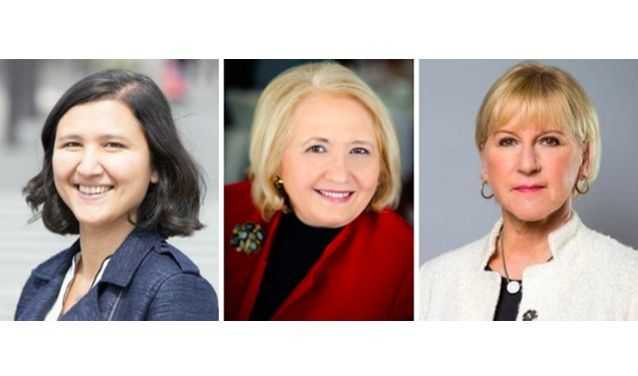Home>Feminist Foreign Policy: Comparing France, Sweden and the United States

18.03.2021
Feminist Foreign Policy: Comparing France, Sweden and the United States
Why is it important to apply a gender equality perspective throughout foreign policy agenda? A few years after Sweden adopted a feminist foreign policy in 2014, several countries including France have followed its lead, raising pressure on the United States to do the same. On 10 March 2021, PSIA invited three leading experts to discuss the topic and compare the French, Swedish and American perspectives, in a conference chaired by former Dean Enrico Letta.
Margot Wallström, who initiated this approach when she was Minister of Foreign Affairs of Sweden, opened the discussion with a reflection: the Covid-19 pandemic “has displayed brutally the lack of equality and discrimination in the world and at home”.
She analysed the current context through a gender lens, explaining how women have been affected differently by the pandemic and its consequences, and arguing that feminist foreign policy is essential in order to “build back better”: “feminist foreign policy makes life better for everyone”.
Melanne Verveer elaborated on this thought, adding that women are disproportionately affected by all issues from climate change to conflicts, but can also be involved as agents of change. The first US Ambassador-at-large for Global Women’s Issues (2009-2013), she notably worked with Hillary Clinton at the State Department to incorporate a gender lens into US foreign policy decisions.
“We know the fate of women and the fate of nations goes hand in hand,” she stated: “You will never have a durable peace without the participation of women and their experiences being brought to the table.”
Delphine O, Ambassador-at-large and Secretary General for the Gender Equality Forum - the largest international summit for women’s rights since 1995 - insisted on the difference between countries that have put gender equality at the center of their foreign policy, and those who adopted a proudly and outspoken feminist foreign policy. “It is a radical move for a government to use the ‘F-word’ - Feminist”, she said, adding that such political decisions give “a strong impulse to all feminist and women’s movements around the world”.
The Gender Equality Forum, which will be held in June in Paris and co-chaired by France and Mexico, aims to establish a roadmap of concrete gender equality goals to be achieved in the next five years, explained Delphine O: “In every instance, any time we are pushing for any issue, we have to integrate the gender angle”.
To learn more about feminist foreign policy and the take-aways from the conference, watch the replay below: